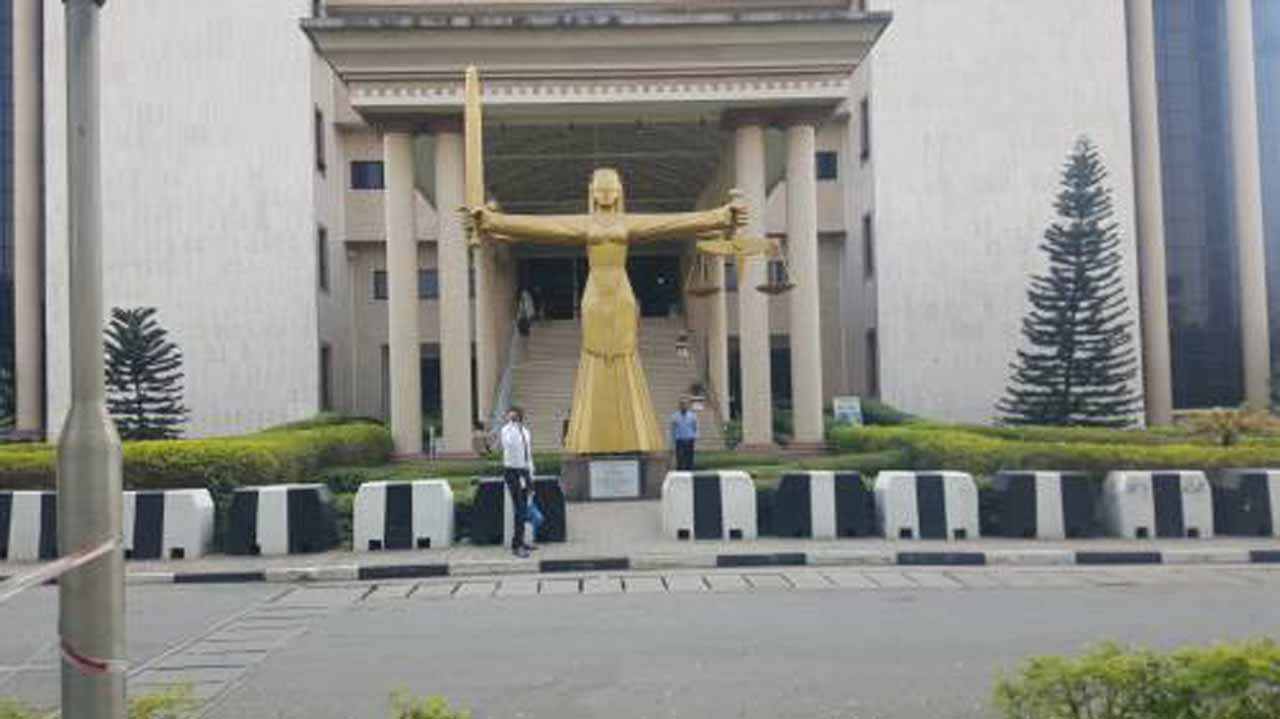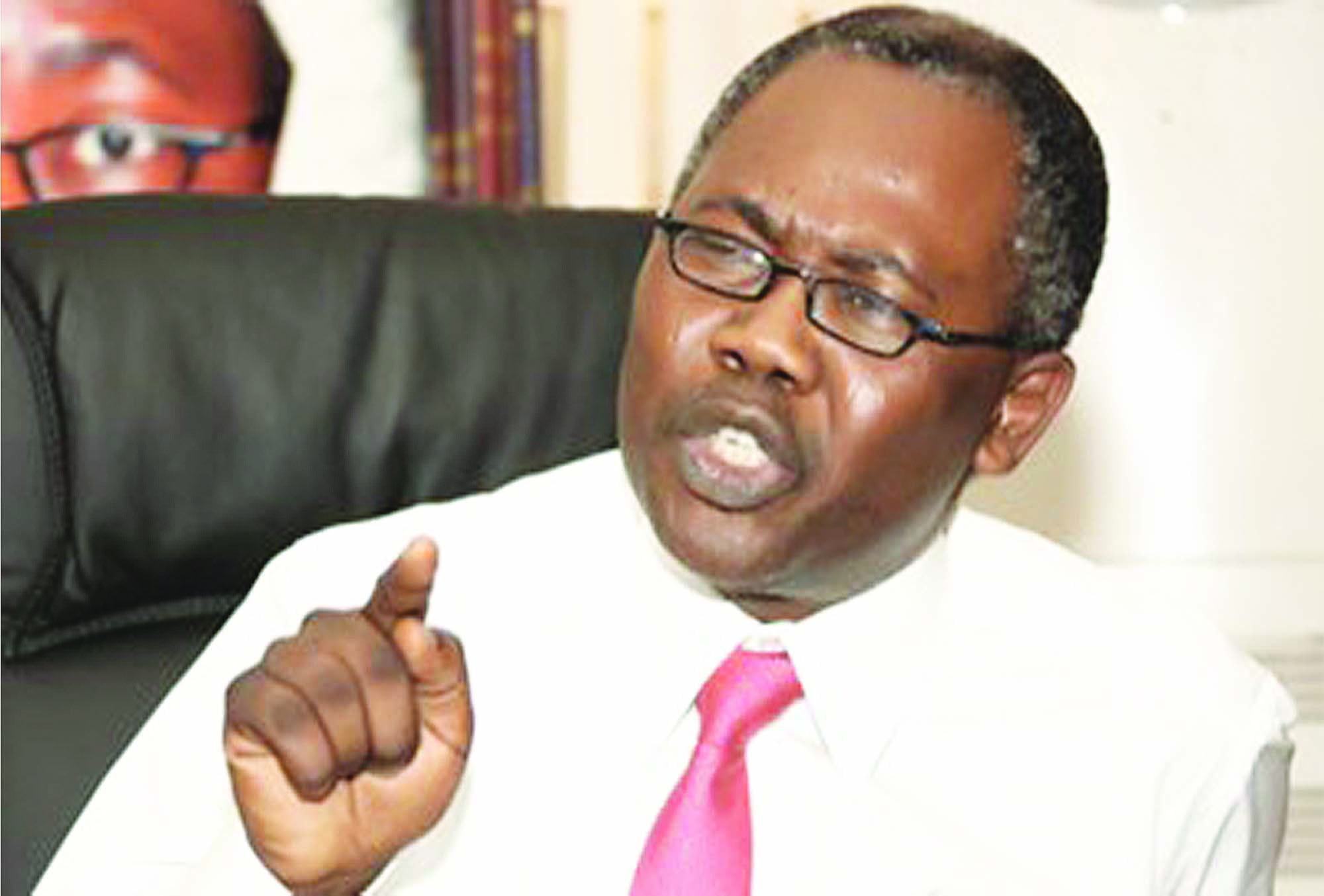Otodo Gbame: Court Dismisses Contempt Application Against Ambode, Others
A Lagos High Court sitting in Igbosere yesterday dismissed a contempt application filed against Governor Akinwunmi Ambode and three others by some displaced residents of Lagos waterfront settlements for allegedly disobeying a valid order of the court.
The trial judge, Justice Adeniyi Onigbanjo, in a ruling on the application, held that the court lacked jurisdiction to entertain the contempt application against the governor due to Constitutional provision which conferred immunity on him.
Thirty-three residents of Otodo Gbame area of Ilado in Lekki area of Lagos state had filed the contempt application against Ambode, the State’s Attorney General and Commissioner for Justice, Adeniji Kazeem; Commissioner for Physical Planning and Urban Development, Wasiu Anifowoshe; and the State’s Commissioner of Police, Fatai Owoseni for allegedly flouting a ruling which ordered parties to maintain status quo.
They claimed that they filed the suit on behalf of themselves and other residents of settlements including Otodo Gbame, Tomaro, Otumara, Orisunmibare, Oko Agbon, Itun Atan, Sogunro, the Ikorodu communities of Ofin, Bayeku and Olufunke Majidun and the Bariga communities of Ago Egun and Ebute-Ilaje.
The claimants through their counsel, Friday Oteiku claimed that the respondents breached an order of last November 7 and 16 restraining them “from demolishing any of the applicants’ “homes, business premises, properties or community facilities in waterfront communities across Lagos State inhabited by the applicants or evicting the applicants there from.”
It will be recalled that Justice Adeniyi had earlier ordered Governor Ambode to appear before him to explain reason for the demolition exercise, but the judge backtracked on Wednesday on the ground that the 1999 Constitution (as amended) gives the Governor immunity which shields him from any legal case while he remains as the Governor of the State.
Justice Onigbanjo said, “Much as the court empathises with the applicants’ rights and would ordinarily take all steps within the ambit of the law to protect the sanctity of judicial authority and the rule of law, the facts and circumstances of this case, in my opinion, regrettably place a constitutional barrier to any such exercise of judicial power.”
He also noted that it is settled law that committal proceedings are criminal/quasi-criminal which lead to imprisonment of the alleged contemnors if found guilty.
The judge further held that the Governor, under Section 308 of Constitution, has constitutional immunity from prosecution and from being sent to prison, adding that the court lacked the jurisdiction to entertain the application against him.
The court also stated that the other respondents could also not be held liable for contempt since it was the claimants’ argument that the other respondents acted under the order and direct supervision of the Governor.
He held, “Under those circumstances, I think that not only must the facts alleged in proof of contempt of court be proven beyond reasonable doubt, in this particular instance, because the respondents’ actions complained about was allegedly carried out with the direct supervision of the third respondent, who happens to be the Executive Governor of Lagos State, Section 308 of the 1999 Constitution unequivocally forbids the court from entertaining this manner of application or any other criminal proceedings against the occupant of that office so long as he remains in office.
“Now, because it is clear from the affidavit evidence adduced by the applicant that the third respondent ordered the actions complained about in flagrant disobedience of the above stated directives of this court, then it must follow that the other respondents in this suit cannot really be said to be in contempt of this court or to be said to have caused the actions complained about,” the judge ruled.
Justices Onigbanjo further stated that following the concession by applicants’ counsel, Friday Oteiku, and defence counsel S. A. Quadri that mediation between the parties had broken down, he would go ahead and deliver judgment in the substantive suit on April 25.
After the ruling, Saheed Quadri, the Lagos State Director of Civil Litigation, told the court that contrary to Oteiku’s claims that the claimants were the first settlers on the land, the plaintiffs had no title to the land whatsoever.
The lawyer explained that the court order directing the parties to maintain the status quo was disobeyed by the plaintiffs who continued to build on the land.
But Justice Onigbanjo, who expressed grave concern if it was true that the governor deliberately disobeyed a court order, stated that the government and its lawyers, had a higher moral burden in this instance.
He asked: “Are you saying that because a child is rolling in sand, you, an adult, will also roll in the sand? This court will expect a higher level of compliance from this (government’s) side than from the other side.”




